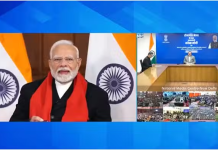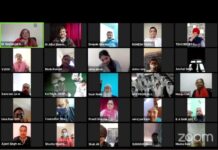Patiala House Court has adjourned the hearing till January 22 in the second case registered by CBI on the recommendation of Nanavati Commission against former Congress leader Sajjan Kumar.
In the first case, Kumar was convicted this Monday and given a life term. Amid furore and demands for his expulsion, Kumar himself resigned from the primary membership of the Congress.
Thirty-four years after the riots, the Delhi High Court had called it a “crime against humanity” engineered by politicians with assistance from police. Setting aside the acquittal of Kumar, the court convicted him and five others saying that “criminals” had escaped prosecution and punishment for over two decades.
The case related to the killing of five Sikhs in Raj Nagar part-I area in Palam Colony in South West Delhi on November 1-2, 1984, during the riots in the national capital and other parts of the country following the assassination of then prime minister Indira Gandhi by her two Sikh bodyguards on October 31.
Kumar’s conviction sparked political debate with the BJP demanding that newly appointed Madhya Pradesh Chief Minister Kamal Nath also be made to step down. It must be noted that Nath’s name had also figured in the anti-Sikh riots.
However, the Congress said Kumar’s conviction should not be politicised and hit back at the BJP, alleging that names of its leaders in high positions had cropped up in 2002 Gujarat riots.
The party also defended Nath after he was targeted by the BJP and the Akali Dal, saying there was no case against him, and noted that Kumar did not hold any party post and was not given a ticket for decades.
Punjab Chief Minister Amarinder Singh was more vocal on the issue as he hailed the conviction of Kumar, describing it as a case of justice finally delivered to the victims. He claimed it was a vindication of his stand as he had been naming Kumar as well as a few other former Congress leaders based on information he received from victims in refugee camps in Delhi during the riots.














































